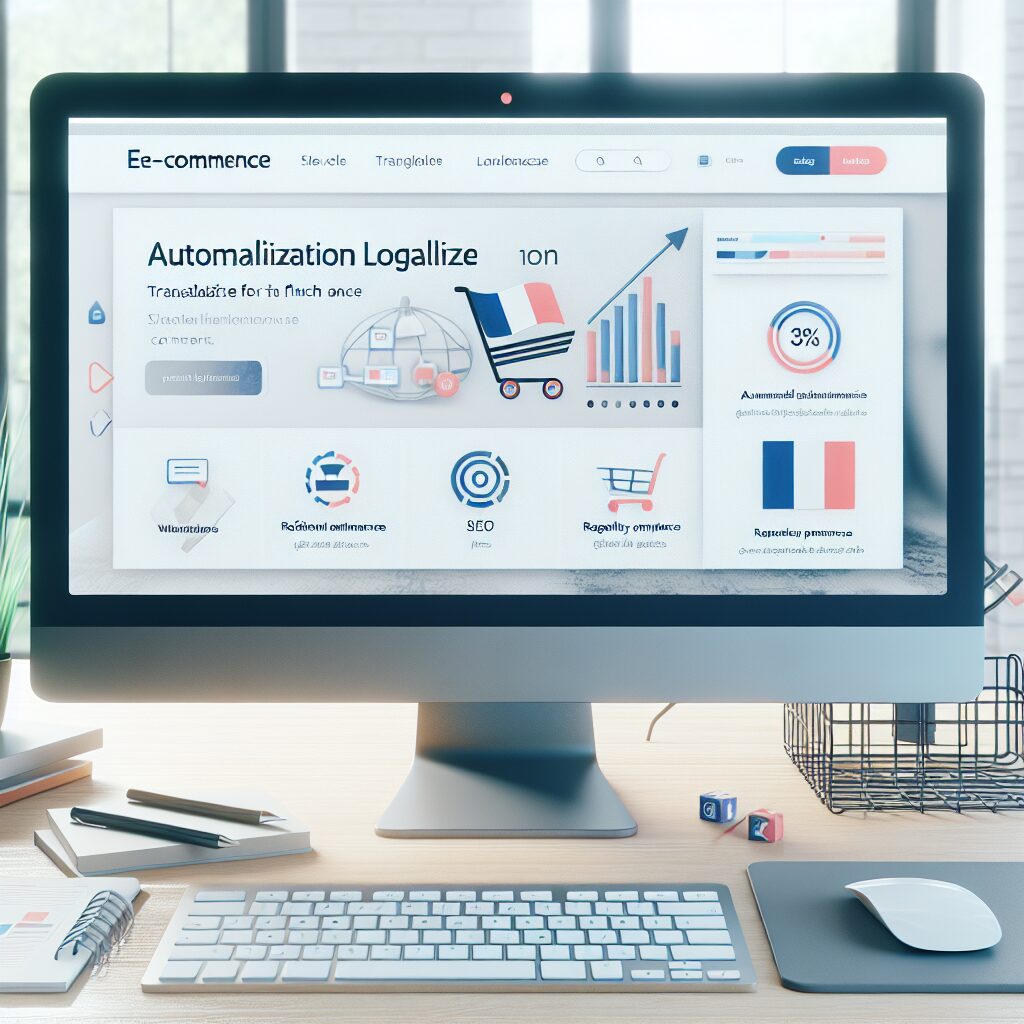About eldris
Clone.Eldris.ai empowers brands to instantly replicate and translate their websites for seamless global expansion. Our automated system delivers SEO-friendly, multilingual clones that launch in days, not months.
In This Article
- Cloning services offer unmatched control and SEO benefits for multilocale websites.
- Plugins are ideal for low-budget, quick-launch scenarios without complex infrastructure needs.
- Cloned domains load faster and perform better in local search rankings.
- Evaluate your market strategy before choosing between plugins or full-scale cloning solutions.
- Cost-effective plugin models can eventually lead to costly migrations if scalability wasn’t planned.
The Rise of Multilingual Websites
Why Going Multilingual Is Crucial for Growth
In today’s globally accessible digital environment, expanding your website to reach audiences in multiple languages is no longer a luxury—it is a strategic imperative. Deploying multilingual capabilities lets businesses tap into new markets, improve user experience for native speakers, and align better with local regulations and preferences. With eCommerce, SaaS, and service-oriented websites clamouring for visibility on different regional search engines, language localisation has become a cornerstone of growth. Implementing multilingual architecture with either cloning services or DIY translation plugins is how companies put this into action. Choosing the optimal approach directly impacts scalability, performance, and profitability.

Cloning Services: Definition and Benefits
What Are Cloning Services and How Do They Work?
Cloning services are professionally managed solutions that create independent copies—or “clones”—of your original website for each target language or region. Each clone functions as a standalone version, hosted on its own regional domain or subdomain-level structure (e.g., fr.example.com). These services go beyond word-for-word translation. They allow full localisation, which includes tailored media assets, metadata, content tone, and compliance adjustments tailored to specific markets.
As a central advantage, cloning services ensure that each copy is optimised for local users and search engines, offering unparalleled control over performance and SEO. This type of structure typically delivers significantly faster page load times for regional visitors and allows better caching, geotargeting, and regulatory compliance. Businesses using cloning services also benefit from more robust analytics segmentation and improved indexing in global SERPs due to the use of dedicated URLs. Most importantly, changes made in one version do not automatically reflect on others, providing maximum autonomy.
“Cloning services don’t just translate websites—they transform them into native digital experiences for each market.” – International Web Strategy Consultant
DIY Translation Plugins: Pros and Cons
Ease of Use vs Performance Trade-offs
DIY translation plugins are simple software tools that integrate directly into your content management system (CMS), enabling automatic or manual translation of site content. Their primary advantage lies in their accessibility—anyone with administrative access can install a plugin, select languages, and begin offering a multilingual experience within hours. Popular plugins such as WPML, Polylang, and Weglot offer both free-tier and premium options.
However, ease comes at a cost. Most plugins rely on dynamic rendering techniques that generate multilingual content at runtime. This introduces latency, memory overhead, and limited search engine indexing capabilities. Additionally, translated content often lives within a single website instance, meaning performance optimisations, domain-level SEO, and tailored user experiences are constrained. Plugins are ideal for small-scale websites or those entering multilingual markets for the first time, but they fall short for high-traffic or enterprise-level demands.
SEO Impacts: Plugins vs Cloning
Optimising for Discoverability in Regional Search
From an SEO standpoint, cloning services outperform plugins due to their native handling of international SEO best practices. Each language version can be assigned its own URL structure (e.g., ccTLDs or dedicated subfolders), enabling better content indexing, hreflang implementation, and geotargeting. Moreover, cloned environments allow for unique metadata and content alterations that align tightly with local search trends.
In contrast, DIY translation plugins typically use query parameters or JavaScript-rendered content, which may not be fully indexed or prioritised by search engines. Some premium plugins have improved in this area, but limitations remain—especially for websites competing in highly saturated international markets. For companies relying heavily on organic traffic, cloned websites offer a distinct edge in achieving and maintaining high search visibility.
Performance, Loading Speed & Infrastructure
How Each Approach Handles Traffic and Uptime
Performance and uptime are vital for any website, and the solution you adopt will significantly impact your infrastructure’s behaviour. Cloning services distribute traffic across individually hosted versions of the site, often located in regional data centres through CDN integrations. This enhances latency, improves load balancing, and increases availability during peak periods or regional outages. Moreover, because cloned sites operate independently, a failure in one locale does not affect the global web presence.
Plugins, however, centralise all requests against a single underlying infrastructure. Every language variant is dynamically served from the same host environment, causing potential slowdowns, especially during high traffic. When multilingual content is rendered on-the-fly, additional processing cycles affect response times. For businesses where load time directly correlates with user engagement and conversion rates, cloned infrastructures deliver tangible performance advantages.
Maintenance and Scalability Comparison
How Easy Are These Solutions to Maintain?
Maintenance responsibilities differ greatly between cloning services and plugins. With cloning services, changes made on the original site must be manually replicated across clones unless a synchronisation system is in place. While this allows granular control, it could introduce overhead for teams with limited resources. However, leading cloning service providers offer tools to streamline updates and maintain consistency efficiently.
In contrast, plugins synchronise content changes automatically. A single edit cascades across all language variants, making routine maintenance easier, particularly for smaller organisations. Yet, this also limits customisation—a translated version might require editorial variation to appeal to its target audience, which plugins handle poorly. For growing websites that aspire to offer unique experiences in each locale, cloning ensures long-term scalability and content autonomy.
Costs and ROI in Context
Budgeting for Long-Term Multilingual Success
When evaluating the financial implications, it’s tempting to perceive plugins as lower-cost solutions, and in the short term, they are. Setup requires minimal effort, and recurring fees are modest. However, the compromise comes in the form of limited flexibility, inferior SEO outcomes, and potentially high development costs later if migration to a more scalable solution becomes necessary.
Cloning services generally cost more upfront, both in setup and ongoing hosting. Nevertheless, they yield better long-term ROI by boosting conversions, lowering bounce rates, and achieving higher rankings in international search results. Furthermore, because each cloned version can be monetised or adjusted independently, businesses gain greater ownership over regional strategies. In enterprise settings, this independence often makes the cloning investment worthwhile. Learn more about Building Multilingual E-commerce Websites
Best Fit Use Cases: When to Choose Which
Industry Examples of Real Implementations
Different industries have different requirements when adopting multilingual capabilities. For instance, global eCommerce platforms like fashion retailers prefer cloning services to offer region-specific products, pricing, and customer support portals. The ability to run promotions independently in France, Germany or the UK delivers high strategic value.
Educational services or non-profits, by contrast, frequently use translation plugins due to tighter budgets and more static content needs. Plugins allow them to efficiently make information accessible across demographics without the burden of maintaining separate domains. Similarly, startups or local service businesses just exploring international presence may prefer plugins as an MVP tactic. As their needs expand, many eventually transition to cloning-based systems. Read a related article
Expert Opinions and Community Insights
What Professionals Are Saying
Web development professionals often point to the superiority of cloning services in providing control and regional authenticity. “When building for markets like Japan or the UAE, you’re not just translating—you’re localising. That requires a panoptic lens that plugins can’t deliver,” says one multilingual UX lead.
Meanwhile, plugin vendors argue that they’re closing the gap through AI-powered translation, better SEO integrations, and improved caching. Online communities on Reddit and Stack Overflow continue to debate performance metrics and user experience benefits extensively. However, the general consensus is that if you prioritise SEO, speed, and regional market capture, cloning services lead the charge. Comprehensive translation plugin comparisons
Interactive Quiz: Find Your Best Fit
Answer and Get Your Recommended Strategy
Not all businesses require the same solution. Use this quick quiz to determine your optimal path:
- Does your business have customers in multiple countries?
- Do you require full localisation across images, products, or layout?
- Is domain-level SEO and traffic segmentation important?
- Do you anticipate scaling up to 5 or more regional sites?
- Is website load speed a key KPI?
If you answered ‘yes’ to three or more, cloning services are likely your best-fit solution. If most answers were ‘no’, a DIY plugin may be sufficient—for now.
Final Comparison Summary
In conclusion, selecting between cloning services and DIY translation plugins hinges on your organisation’s scale, complexity, and international ambitions. Plugins offer fast, affordable solutions for simple multilingual needs but come with technical limitations. Conversely, cloning services demand more resources initially but deliver superior regional performance, SEO, and autonomy. Invest wisely, knowing each approach serves specific purposes—and understanding these differences prepares you for long-term success in global markets.
Great guide on compare-cloning-services-vs-diy-translation-plugins-interactive – Community Feedback
What are the key differences between cloning services and translation plugins?
Cloning services replicate your website in multiple languages by creating separate, localised sites, while translation plugins add multilingual capabilities to your existing site. Cloning enables advanced customisation, improved performance, and granular SEO, while plugins offer simplicity but can have limitations in scalability and flexibility.
How do cloning services impact long-term SEO?
Cloning services can enhance long-term SEO by creating fully localised sites with optimised URLs, hreflang tags, and region-specific structures, which may improve indexing and rankings across different markets compared to many translation plugins.
What maintenance or uptime issues should I consider?
Cloned sites may require their own updates and monitoring, potentially increasing maintenance overhead. However, robust cloning platforms often include automated synchronisation and monitoring tools. Plugins may be easier to maintain initially but can introduce conflicts and complexities as a site grows.










